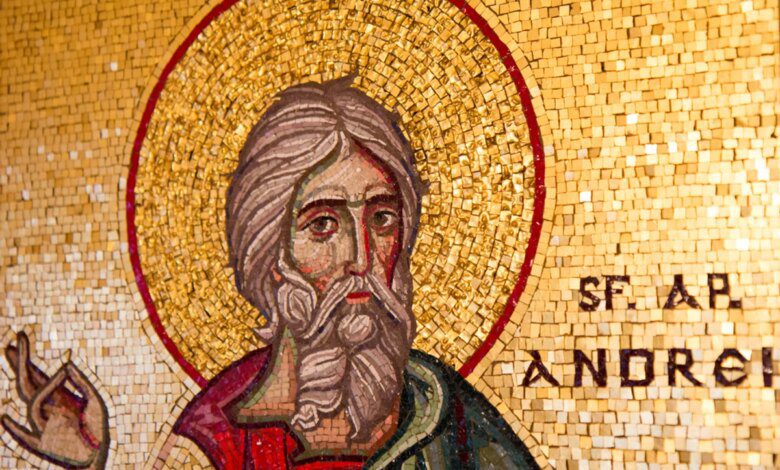
Why is St. Andrew the Apostle called the protector of Romania?
Every year on November 30, Christians celebrate Saint Andrew, the first disciple chosen by Jesus to follow Him. The feast of St. Andrew the First-Called Apostle is special for all believers, but especially for the Orthodox in Romania.
The Holy Apostle Andrew preached Christianity to the Geto-Dacians between the Danube and the Black Sea. In 1997, the Romanian Orthodox Church proclaimed him Protector of the Romanians, and four years later, November 30 became a national church holiday. It is no coincidence that 800,000 compatriots bear his name and have him as their guide. He is a protector for all Romanians, especially when they travel. The saint himself traveled to many places, which is why they say that he accompanies everyone who travels, regardless of the chosen path.
The content of the article
He received the power to heal
“Follow Me, and I will make you fishers of men,” Christ said to the fisherman Andrew and his brother Peter, and they responded to the call. Andrew had previously received the teaching of Saint John the Baptist, being his disciple along with the future Apostle John. He strengthened his faith by listening to stories about Jesus and watching his miracles.
The greatest test befell her at the moment when all the disciples were in danger of renouncing Christ. Because he was strong in his faith, Andrew received from Christ the power to heal diseases, cast out demons, and bind or untie the sins of people.
Through him I became acquainted with the teachings of Jesus
After the Savior's ascension to Heaven, Saint Andrew preached a new teaching in different countries, reaching Thrace, during the time of the Dacians. First he headed to Asia Minor.
He reached the territory of today's Dobruja and the region north of the Black Sea, where he spoke with the Getae about the Holy Trinity. He returned to Byzantium, then stopped in the land of the Peloponnese. He endured obstacles and overcame them all out of love for the Lord. He spoke everyone's language and helped those suffering from illness, leading them to the path of faith. He baptized many believers or himself ordained priests and bishops, founded churches, and prayed for those who began to believe in Christ.
He chose a sacrifice for Christ
During one of his stops, Saint Andrew saw the consul ready to commit suicide and stopped him. He healed the man's wife, casting out the devil that had possessed her, and then baptized her. The angry consul demanded the imprisonment of Saint Andrew. Being closed, it received believers at night. Although they achieved his release, Saint Andrew chose to sacrifice himself.
On the 30th day of the 87th year, Saint Andrew reposed in the Lord, having endured many torments, being crucified near Corinth, in Patras. During his martyrdom, a terrible storm began, which stopped after the saint prayed to God to stop it. Since then, believers have asked for the saint's intercession to calm the elements of nature.
He baptized his disciples at the Derwent Spring.
On the day of remembrance of the Holy Apostle Andrew the First-Called, thousands of pilgrims head to the Derwent Monastery. Here two of the saint's disciples were tortured and without explanation two crosses appeared. Also here, many found healing from illnesses through prayers to the miraculous icon and water from the source of St. Andrew the First-Called.
For almost 2000 years, the Derwent Monastery was a place of prayer, being one of the first monasteries in our country, built on the very places where the Apostle Andrew the First-Called set foot, Christianizing the inhabitants of the ancient Derwent citadel. They say that the saint hit the ground with his staff, and from there a spring gushed out, in the waters of which he baptized those who converted to Christianity.
PHOTO: Shutterstock













